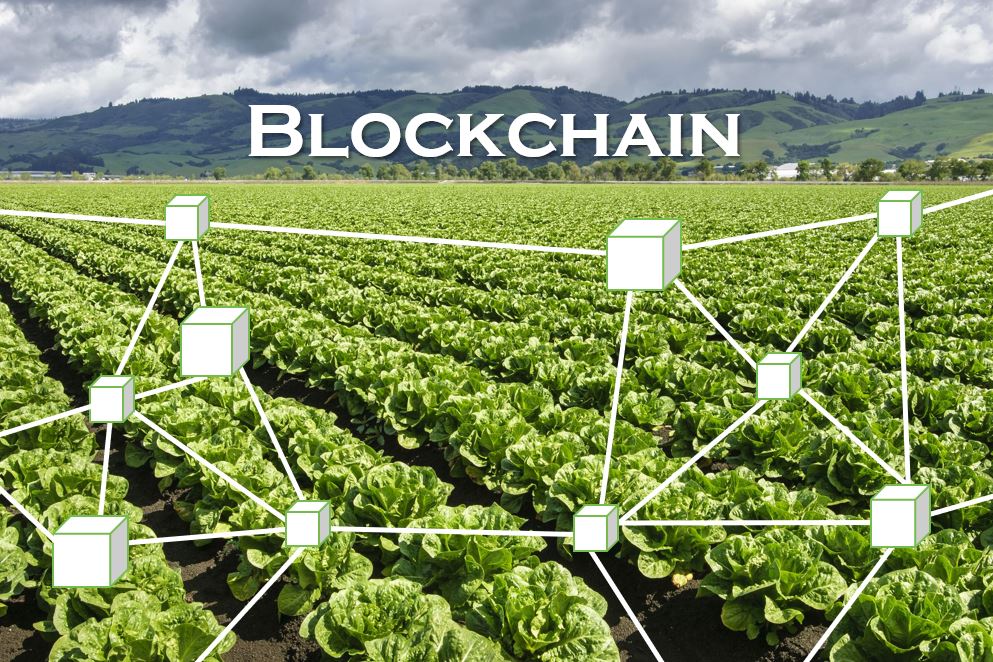The Future Of Blockchain In Agriculture And Food Supply Chains
Blockchain is poised to transform the world of agriculture and food supply chains in ways that will revolutionize the way we grow, harvest, and consume food. Imagine being able to track the origin of your favorite meal, from the seeds used to grow the crops to the hands that harvested and prepared it for your plate. Or picture a system that ensures the highest quality produce reaches your local grocery store, eliminating the risk of contamination and spoilage.

- What Is A Smart Contract And How Does It Work
- Shaping The Future Of Crypto: A Step-by-Step Guide To Participating In Governance Proposals
- The Impact Of Smart Contracts On Legal Agreements
- The Future Of Blockchain In Digital Identity Verification
- Safeguarding Your Digital Fortune: A Hands-On Guide To Hardware Wallets For Cryptocurrency Storage
This may sound like the stuff of science fiction, but with the rise of blockchain in agriculture and food supply chains, it’s fast becoming a tangible reality. By applying blockchain technology to these industries, we can increase transparency, efficiency, and accountability, ensuring that our food systems are safer, more sustainable, and more equitable for all.
One of the most significant benefits of blockchain in agriculture is its ability to enhance supply chain transparency. In today’s complex food supply chains, it’s often difficult to track the origin and movement of products. This lack of visibility can lead to inefficiencies, waste, and even safety risks, such as food recalls and contamination outbreaks. By using blockchain to track and record every step of the supply chain – from planting to harvesting, processing to distribution – we can create a transparent, tamper-proof record of how our food is produced and delivered.
Take, for example, the issue of food recalls. Every year, millions of pounds of food are recalled due to contamination or other safety issues. This can be costly for farmers, manufacturers, and consumers alike, and can even put lives at risk. But with blockchain, food recalls could become a thing of the past. By tracking the origin and movement of products in real-time, we can quickly identify and isolate contaminated batches, preventing them from reaching consumers.
Blockchain is also poised to transform the world of food certification and labeling. In today’s industry, labels like "organic" and "non-GMO" are often applied based on trust and complex paperwork. But what if we could verify these claims with absolute certainty? By using blockchain to track and record the production process, from the seeds used to the soil and climate conditions, we can create an immutable record of how our food was produced. This means that labels like "organic" and "non-GMO" would no longer be based on trust alone, but would be verifiable through a tamper-proof blockchain record.
But the benefits of blockchain in agriculture extend far beyond the realm of supply chain transparency and food certification. By creating more efficient and transparent supply chains, we can also improve the livelihoods of farmers and producers. For example, blockchain-based systems can help farmers receive fair prices for their products by providing them with access to market data and analytics. This can help level the playing field and ensure that farmers are paid what they deserve for their hard work.
Another significant benefit of blockchain in agriculture is its potential to promote sustainability. By tracking the environmental impact of our food systems – from water usage to energy consumption – we can identify areas for improvement and create more sustainable production practices. This can help reduce waste, conserve resources, and promote eco-friendly farming practices.
Finally, blockchain has the potential to democratize access to food markets, creating opportunities for small-scale farmers and producers to reach a wider audience. By reducing the barriers to entry and increasing transparency and accountability, blockchain-based systems can help create more equitable and inclusive food systems.
In conclusion, the future of blockchain in agriculture and food supply chains is vast and exciting. By creating more transparent, efficient, and accountable supply chains, we can promote sustainability, improve food safety, and enhance the livelihoods of farmers and producers. As this technology continues to evolve and mature, we can expect to see significant benefits for consumers, producers, and the environment. Whether you’re a farmer, a manufacturer, or simply a food lover, one thing is clear: blockchain is revolutionizing the way we produce, consume, and interact with food – and it’s an exciting time to be along for the ride.
